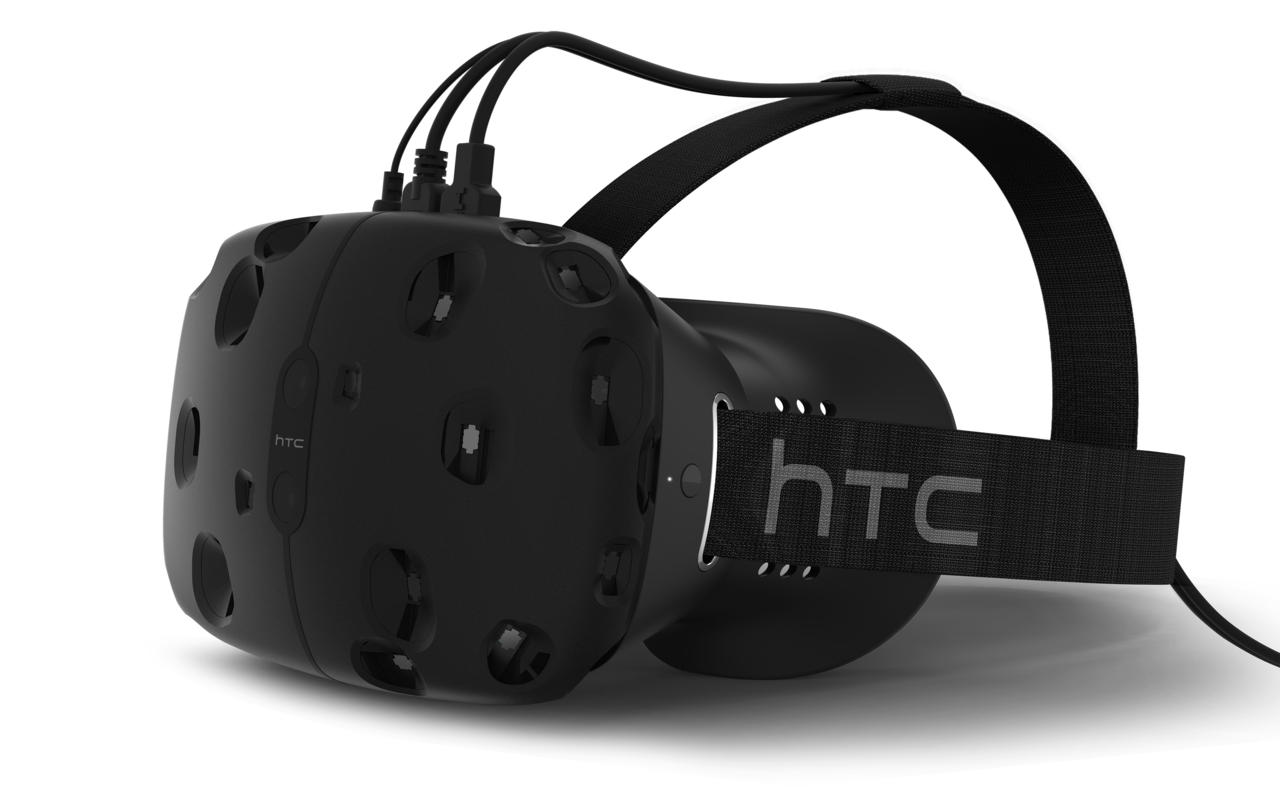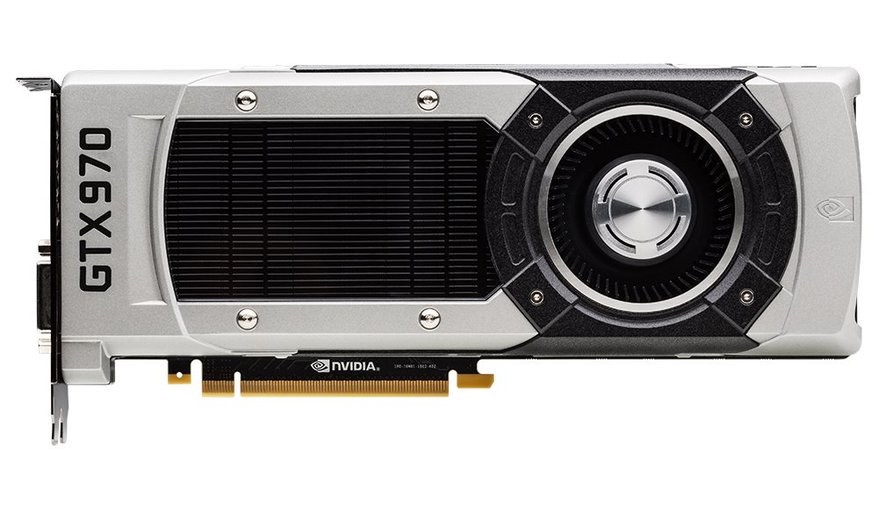Join us every Sunday as we revisit the best hardware and technology stories from the past seven days. This week, Valve gets ready to dive into virtual reality, Net Neutrality goes into effect, and Nvidia responds to recent allegations of misleading consumers.
Valve and HTC Reveal Vive VR Headset
Valve and HTC have revealed a new virtual reality headset, Vive, that's coming to PCs later this year.
A gyrosensor, accelerometer, and laser position sensor will track the rotation of your head, allowing you to look around the virtual environment naturally. HTC said that when coupled with a pair of SteamVR "base stations" in spaces up to 15 feet by 15 feet, the device will be able to track your movement as you walk around the room.
The Vive headset will also use a custom game controller. A user will hold an "Ergonomic VR game controller" in each hand in order to interact with the virtual world. The position of each controller will also be tracked, similar to how Sony's VR headset, Project Morpheus, uses Move controllers to track player movement.

Valve previously announced that it would be showcasing its virtual reality headset at the Game Developer's Conference this week along with new Steam Machines and the final version of the Steam Controller.
- Emanuel Maiberg
FCC Approves Net Neutrality Rules to “Protect the Open Internet”
This week, in a 3-2 decision, the FCC approved the latest rule proposal from Chairman Tom Wheeler. Earlier this year, Wheeler announced a proposal that would seek to classify the internet as a public utility. Doing so would prevent internet service providers from adding in "fast lanes" for premium customers, service throttling, or blocking access to any legal content.

This has huge implications for games and video game consoles specifically. It guarantees that internet service providers won’t be able to charge extra for access to Twitch, game downloads, or an MMO – services that can use quite a bit of bandwidth. The decision will also apply to mobile internet providers, affecting the smartphone service plans that guarantee a certain amount of high-speed data before throttling it.
In a related decision earlier today, the FCC also agreed to override state restrictions on municipal broadband, allowing cities to build out their own competing networks in the same way that they now provide water. This, proponents say, will help ensure cheap, high-speed internet access to everyone. So far this ruling only affects the two cities that specifically filed petitions: Wilson, North Carolina and Chattanooga, Tennessee, but the decision sets a strong precedent.
- Daniel Starkey
DirectX 12 Can Combine Nvidia and AMD Cards
Microsoft could be on the verge of a graphics card breakthrough with the arrival of DirectX 12, as the new API will allow PC users to combine GPUs from different manufacturers.
Presently, PC users who want to double the number of graphics cards attached to their motherboard are restricted by the manufacturer. So, two Nvidia GeForce cards of the same type would work via SLI, and two AMD Radeon cards can unite via Crossfire, but these cannot be mixed and matched.

However, Microsoft is preparing a major announcement at the Games Developers Conference, where it is expected to explain that DX12 can combine all the different graphics resources in a system and treat them as though they were a single card.
The rumour first emerged on Tom's Hardware earlier this week. A source connected to the matter, who asked not to be named, has since explained to GameSpot that the feature is genuine.
Key to the new process is how DirectX 12 will bind multiple GPUs together. According to Tom's Hardware, the tech then "treats the entire graphics subsystem as a single, more powerful graphics card. Thus, users get the robustness of a running a single GPU, but with multiple graphics cards."
Such a breakthrough could bring about new levels of convenience for PC enthusiasts and developers alike. For the first time, it will also mean that multiple GPUs can pool their memory. In theory, this means that installing two 2GB GPUs into a system will get the end user a useable 4GB of memory, unlike the current system, which would only give a user 2GB of memory.
Tom's Hardware notes that the API includes a "frame rendering method called SFR, which stands for Split Frame Rendering." It explains: "Developers will be able to manually, or automatically, divide the texture and geometry data between the GPUs, and all of the GPUs can then work together to work on each frame. Each GPU will then work on a specific portion of the screen, with the number of portions being equivalent to the number of GPUs installed."
- Mark Walton and Rob Crossley
Nvidia Slapped With False Advertising Lawsuit for GTX 970 Card
In January, we learned that Nvidia incorrectly labeled its GTX 970 card, leading to fans accusing it of exaggerating the card's specs. Since then, the GPU manufacturer has been hit with a class action lawsuit for false advertisement.
GTX 970 cards are marketed as having 4 GB of video RAM, but many gamers have found that if the card demands more than 3.5 GB, in-game performance begins to drop off. Nvidia has acknowledged the issue and said that this happens because the card splits its memory into two chunks--one with 3.5 GB and one with 500 MB. When the system needs more than 3.5 GB, it has to use a slower process to access the remaining memory, and that can cause framerate dips and generally slow performance.

For the most part, the issue only affects those playing games at very high resolutions, typically 1440p or 2160p, but the GTX 970 was directed at gaming enthusiasts that wanted a slightly cheaper option than Nvidia's flagship card, the GTX 980.
The lawsuit also lists inaccuracies in the reviewer's guides it sent to hardware critics. This second part is a much bigger problem, because while the 970 does technically have 4 GB of video RAM, it doesn't actually have the 64 render output units (ROPs) or the 2048kb of L2 cache that many publications claimed.
The lawsuit alleges that Nvidia "engaged in a scheme to mislead consumers about the characteristics, qualities, and benefits of the GTX 970." The suit seeks an injunction against Nvidia, legal fees, full refunds for those that purchased the card, as well as restitution.
- Daniel Starkey
Nvidia Boss Responds to GTX 970 "False Advertising" Claims
Nvidia's chief executive Jen-Hsun Huang has responded to criticisms over the company's description of its GTX 970 GPU, saying that his company will "do a better job next time."
While not going as far as an apology, Huang's statement does explain that "instead of being excited" that the company had "invented a way to increase memory of the GTX 970 from 3GB to 4GB, some were disappointed that we didn't better describe the segmented nature of the architecture for that last 1GB of memory."
"We invented a new memory architecture in Maxwell", reads the statement. "This new capability was created so that reduced-configurations of Maxwell can have a larger framebuffer--i.e., so that GTX 970 is not limited to 3GB, and can have an additional 1GB."
"GTX 970 is a 4GB card. However, the upper 512MB of the additional 1GB is segmented and has reduced bandwidth. This is a good design because we were able to add an additional 1GB for GTX 970 and our software engineers can keep less frequently used data in the 512MB segment. Unfortunately, we failed to communicate this internally to our marketing team, and externally to reviewers at launch."
"This new feature of Maxwell should have been clearly detailed from the beginning. We won't let this happen again. We'll do a better job next time."
While the lawsuit and GTX 970 issues are a current cause for concern for Nvidia, it hasn't been suffering financially. In it's latest financial report (covering the three month sales period between November and January), the company reported "record" sales for its Maxwell-based graphics cards, pulling in $1.25 billion in revenue for the quarter, and close to $5 billion in revenue for the year.
- Mark Walton
